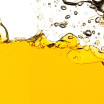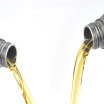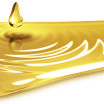Q&A Articles
Q: Is Water Contamination In A Lubricant A Problem?

A: Water can cause a variety of problems in a lubricant. For instance: It can reduce a lubricant’s viscosity (a condition known as viscosity dilution), thereby diminishing the lubricant’s...
Q: Are Two Lubricants With Virtually The Same Performance Specifications Essentially Interchangeable?

A: Not necessarily. Even if they have the same performance characteristics, they may differ in chemical composition. Chemical compatibility is a critical consideration when switching or topping off one...
Q: When Selecting A Lubricant For Cold-Temperature Operations, What Sort Of Pour Point Should I Look For?

A: To ensure proper fluidity at low temperatures, the pour point of a lubricant (the lowest temperature at which it is designed to flow) ideally should be more than...
Q: Mineral-Oil-Based Lubricants Or Synthetic-Based Lubricants — Which Is Better For Your Application?

A: This often-debated issue has no simple answer: It depends on the specific machine, the application, the operating conditions and environment, and other factors. Mineral-oil-based lubricants can offer advantages...
Viscosity Q&A

A lubricant’s viscosity is generally considered one of its most important properties, and with good reason: If the viscosity of a lubricant is even modestly different from what is...